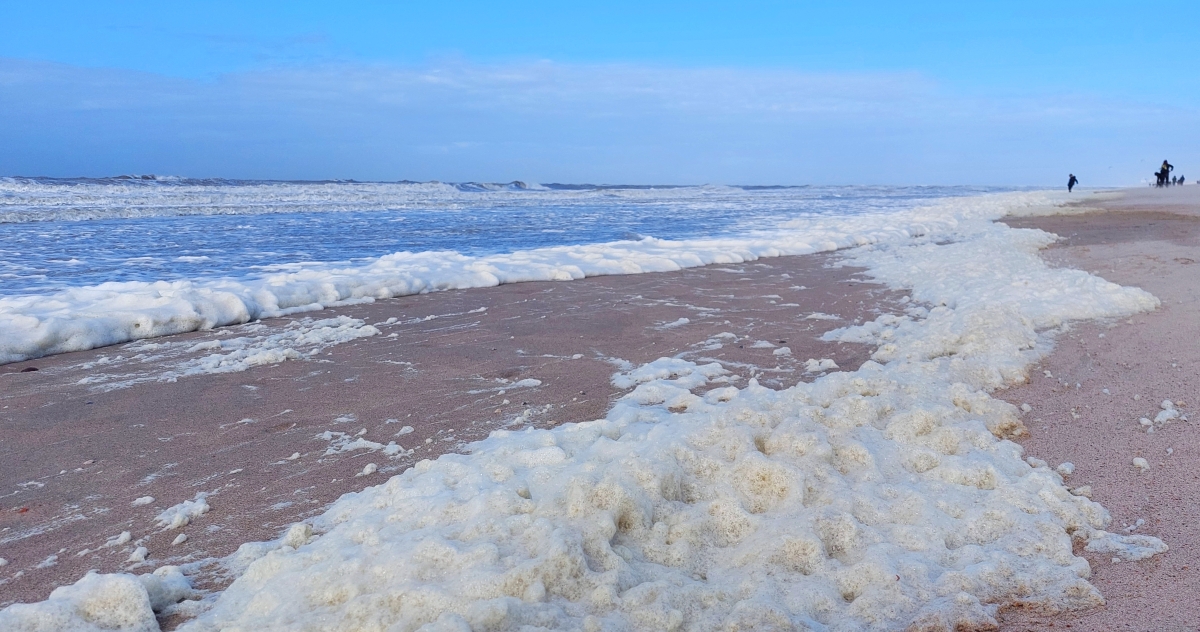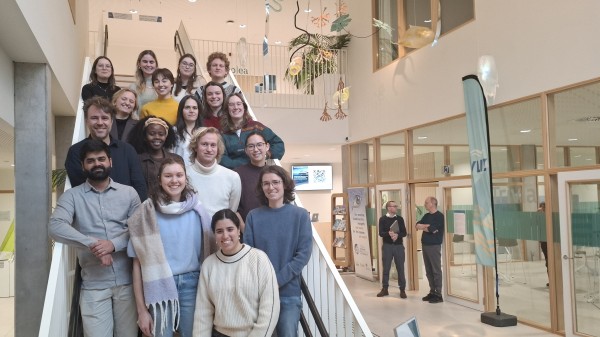
Photo: VLIZ | Nancy Fockedey
The European Green Deal wants to improve the well-being and health of citizens and future generations by, amongst others, creating a toxic-free environment. Therefore, the EU needs to better monitor, report, prevent and remedy pollution from air, water, soil, and consumer products. In 2021, the Commission adopted the Zero Pollution Action Plan for air, water and soil to address (marine) pollution in a more holistic and integrated manner. It sets out key 2030 targets to speed up reducing pollution at source, aiming to achieve pollution levels no longer considered harmful to human health and natural ecosystems.
The SOS-ZEROPOL2030 project aims to develop a holistic zero pollution framework which can help guide the EU towards achieving zero pollution in European seas by 2030, focusing on the four priority pollutants: microplastics, underwater noise, PFASs and nutrients.
Effectively addressing marine pollution is challenging, due to its diverse emission sources, involving multiple human activities and various entry routes into the sea. Marine pollution is often a transboundary problem, not recognizing nor respecting territorial boundaries. Furthermore, certain forms of pollution have the potential to spread over vast distances, extending well beyond their original entry points. Consequently, environmental policy on marine pollution is often very complex and can indeed resemble a labyrinth of referrals.
An European group of experts, under the lead of the Flanders Marine Institute (VLIZ) has compiled the necessary insights to better understand the current environmental status, the efforts made by all Member States to assess the environmental status of European waters, and the feasibility of achieving the proposed EU environmental objectives and targets by 2030. Based on the insights and results, the report identified the stepping stones to be taken to improve and accelerate progress on EU marine pollution policy.
How feasible to reach the proposed goals and targets by 2030?
- Microplastics: The EU 2030 Zero Pollution target aims to improve the water quality by reducing waste, plastic litter at sea (by 50%) and microplastics released into the environment (by 30%). Based on current environmental data or knowledge, it appears that the EU environmental target for microplastics cannot be achieved; although EC states addressing intentionally added microplastics would be sufficient to meet the inflow target to the environment.
- Underwater noise: The Zero Pollution Action Plan refers to the Marine Strategy Framework Directive (MSFD) for targets and measures related to underwater noise. The threshold value for ‘tolerable' continuous noise states no more than 20% of a given marine area to be exposed to continuous underwater noise over a year. Similarly, no more than 20% of a marine habitat can be exposed to impulsive noise over a given day, and no more than 10% over a year. Building on expert judgement, the proposed MSFD targets are considered meaningful with respect to ecosystem health but are categorized as ‘unfeasible’ because there is currently too little knowledge and data, and harmonised approaches have not yet been developed.
- PFASs: The Zero Pollution Action Plan focuses at restricting the per- and polyfluoroalkyl substances (PFASs) for all non-essential uses, reducing their emission to the environment. This is implemented via the REACH Regulation of the European Union and it stands for the registration, evaluation, authorisation, and restriction of substances (chemicals). Meeting the EU environmental targets concerning PFASs will be 'challenging' or even 'impossible', as the availability of environmental data and knowledge is still very limited, especially for the marine environment.
- Nutrients: The 2030 Zero Pollution target aims to a reduction of nutrient discharges and emissions by 50%, while ensuring that there is no deterioration in soil fertility. This target is categorised by the report as ‘unfeasible’ since it is still challenging to quantify diffuse sources. On the other hand, the realisation of the EU environmental targets set by the Water Framework Directives (WFD) and the MSFD are not considered impossible, but 'challenging' based on the available environmental nutrient data and knowledge.
Read more
- SOS-Zeropol2030: The EU Zero Pollution Ambition (2023) Devriese et al. | VLIZ-library
- Download the pdf of the document directly:


